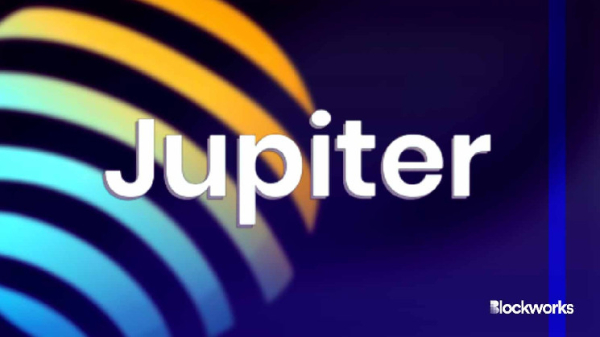Jupiter airdrop draws criticism, but support remains strong

Less than 24 hours following Jupiter’s much-anticipated airdrop, some critics are raising concerns about how the JUP token was launched.
Earlier this week, the Jupiter team outlined a comprehensive strategy that went beyond a simple token giveaway.
They aimed to use JUP as a cornerstone for DeFi 2.0, focusing on expansive growth, ecosystem initiatives and a governance model that would evolve to incorporate significant community decision-making.
Its “50/50 Tokenomics,” token minting ritual and cold wallet release conditions demonstrated an approach to managing token supply, distribution and security, ensuring long-term project sustainability and community involvement.
However, potential misunderstandings about the project’s intentions have led some to believe that the Jupiter team’s actions post-airdrop resembled aspects of a public sale.
A key issue raised by observers centers around the Jupiter team’s method of offering JUP on the open market, which they say has doubled as a capital-raising strategy. According to critics, this detail was not clearly communicated to those participating, leading to discussions about the level of transparency and the degree to which buyers were making informed decisions.
Loading Tweet..
An X user that goes by the pseudonym 0x_Hammer noted in a tweet that the Jupiter team had put in “moon protection” on the JUP token launch so that prices could not exceed 0.70 until the team secured $100 million.
“People [are] participating in a sale without even realizing it,” 0x_Hammer wrote.
To address these concerns, meow, the founder of Jupiter, wrote in an X post that the team would have received more funds had they opted for an over-the-counter (OTC) deal or a regular initial DEX offering (IDO).
The reason they had launched their token in the way they did was to ensure that airdrop recipients would be able to sell into a massive pool, while prospective buyers would have the assurance that there would be a big enough pool to absorb selling pressure from airdrops.
“We, as a team, take on the risk that we have zero certainty about how much we will actually end up with because the community and those who have buyer remorse get first dibs,” meow wrote.
A crypto user that goes by the pseudonym GraffirapNFT accused the team of using the ICO to drive fake demand.
This claim, though, had already been clarified by the Jupiter team in an elaborate document describing the tokenomics of its token. The document addresses the in-and outflows of JUP tokens, where they would be stored and who would hold the tokens.
Meow does admit, however, that the team had made mistakes in choosing the price range in which the token was launched.
Blockworks research analyst Ren Yu Kong noted that much of the criticism around the Jupiter airdrop has been unwarranted.
“Fundamentally, Jupiter set a price and a valuation that they were willing to launch at, in this case, $4 – $7 billion FDV. It’s no different to investment bankers setting an IPO price, which a company is willing to sell shares at,” Kong said.
He added, “No one is forcing participants to buy if they don’t like the valuation in the launch pool. Granted, maybe one would have preferred more free market price discovery, but that’s easier said than done.”